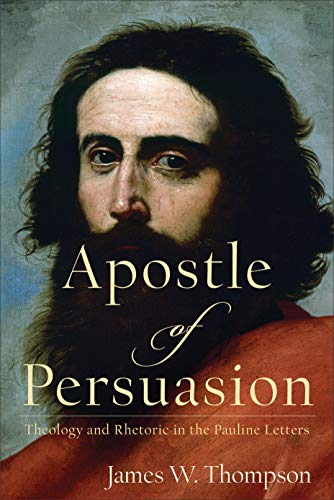Q. I am a bit surprised, since you do devote a good lengthy chapter to Colossians and Ephesians that you don’t mention or deal with the arguments of Jeal, Lincoln and others that we are dealing with Asiatic style rhetoric here, which is not in evidence in the earlier Paulines. Have you an opinion about the difference in rhetorical style in those letters?
A. I cited Jeal in several instances in my chapter on Ephesians. For my purposes, it was not important to speak of Asiatic style, since my major focus was inventio; nor am I sure what the characteristics of this style are or who is the best exemplar of it. Undoubtedly, the style is remarkably different from that of the undisputed Pauline letters. This is particularly the case in Ephesians. Much of the style seems to grow out of the liturgy and have a poetic/hymnic feel to it. I suspect that the heaping up of phrases and dependent clauses grows out of the liturgy. Certainly 1:3-14 does.
Q. I wonder if you are familiar with the work of Stephen Wilson on the Lukan character of the Pastorals. Some 40 words or phrases found in Pastorals are found nowhere else in the NT except in Luke-Acts (e.g. the frequent use of the term soter). I like to say the voice is the voice of Paul, but the hands are the hands of Luke. Your reaction?
A. I am not familiar with Stephen Wilson’s work, but the Lukan nature of the Pastorals makes sense to me. They both use more Hellenistic terminology, including such words as eusebeia and the cardinal virtues. Jerome Quinn, who wrote a commentary on the Pastorals (Anchor Bible, I believe), first introduced me to this insight in a personal conversation as he was working on his commentary. I understand the arguments about the authorship of the Pastorals. I prefer to say “disputed letters” because I don’t have the certainty that Paul did not have a hand in them.











